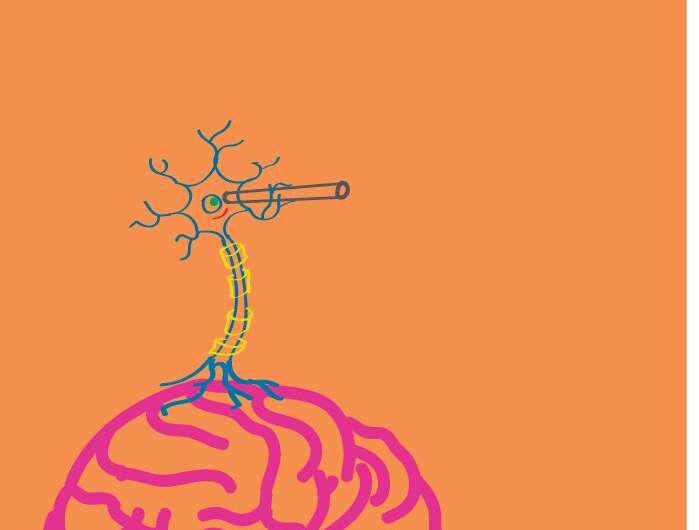Study shows that individual neurons could learn by predicting future activity
February 24, 2022
feature
Humans have been trying to understand how the brain works and how it acquires information for centuries. While neuroscientists now have a pretty good understanding of how different parts of the brain work and what their function is, many questions remain unanswered; thus, a unified neuroscience theory is still lacking.
In recent years, computer scientists have been trying to create computational tools that artificially recreate the functions and processes of the human brain. New neuroscience theories clarifying how the brain makes predictions could help to significantly enhance these tools so that they replicate neural functions in increasingly realistic ways.
Researchers at the Canadian Centre for Behavioural Neuroscience in Lethbridge, Canada have recently carried out a study investigating how individual neurons learn and make predictions about the future. Their findings, published in Nature Machine Intelligence, suggest that the ability of single neurons to predict their future activity could offer a new learning mechanism.
“Neuroscience is now at the stage that biology was at before Darwin,” Artur Luczak, one of the researchers who carried out the study, told TechXplore. “It has a myriad of detailed observations, but no single theory explaining the connections between them. Thus, the big quest in neuroscience is to find unifying principles to explain how the brain works. Our work was aimed at contributing to this quest.”
Using mathematical equations, Luczak and his colleagues demonstrated that the predictive capabilities of individual neurons could provide a new learning mechanism, which could ultimately be replicated in machines. According to the researchers, this learning process could have a metabolic origin, as neurons might need to minimize their own synaptic activity, while maximizing their impact on local blood supply by recruiting other neurons.

“You learned that dark clouds predict rain, as this helps you to stay dry and thus to save your heat energy,” Luczak explained. “Similarly, neurons may be able to learn that X amount of input activity is usually followed by Y amount of activity. By adjusting synapses to minimize surprise—that is, the difference between actual and expected activity—neurons can save energy by being active only as much as necessary. We showed that the predictive learning rule arises naturally, as a consequence of maximizing metabolic energy by a neuron.”
In their paper, Luczak refers to this learning mechanism as the “lazy neuron principle.” The team is still unsure about the exact mechanisms that might allow a single neuron to make predictions, but they believe that they could be linked to calcium signaling (i.e., a process that entails the use of calcium ions to communicate and drive intercellular processes).
“Interestingly, our results also suggest that spontaneous brain activity (e.g., during sleep) provides ‘training data’ for neurons to learn to predict X from Y,” Luczak said.
The recent study carried out by this team of researchers could have many interesting implications, both for the field of neuroscience and machine learning. Overall, their findings suggest that a predictive mechanism underpinning the functioning of individual neurons could play a crucial role in learning.
“In the future, this idea may also help to create more powerful artificial neural networks to solve challenging real-life problems,” Luczak said. “I believe that the predictive learning rule we unveiled is an important step towards finding a unifying theory of the brain. However, more steps are needed to achieve this, and we are excited to continue this journey.”
Artur Luczak et al, Neurons learn by predicting future activity, Nature Machine Intelligence (2022). DOI: 10.1038/s42256-021-00430-y
© 2022 Science X Network
Citation:
Study shows that individual neurons could learn by predicting future activity (2022, February 24)
retrieved 24 February 2022
from https://techxplore.com/news/2022-02-individual-neurons-future.html
This document is subject to copyright. Apart from any fair dealing for the purpose of private study or research, no
part may be reproduced without the written permission. The content is provided for information purposes only.
For all the latest Technology News Click Here
For the latest news and updates, follow us on Google News.
